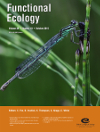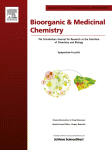
We’re pleased to present a guest post from Michèle B. Nuijten, a PhD student at Tilburg University who helped develop a program called “statcheck,” which automatically spots statistical mistakes in psychology papers, making it significantly easier to find flaws. Nuijten writes about how such a program came about, and its implications for other fields.
Readers of Retraction Watch know that the literature contains way too many errors – to a great extent, as some research suggests, in my field of psychology. And there is evidence that problem is only likely to get worse.
To reliably investigate these claims, we wanted to study reporting inconsistencies at a large scale. However, extracting statistical results from papers and recalculating the p-values is not only very tedious, it also takes a LOT of time.
So we created a program known as “statcheck” to do the checking for us, by automatically extracting statistics from papers and recalculating p-values. Unfortunately, we recently found that our suspicions were correct: Half of the papers in psychology contain at least one statistical reporting inconsistency, and one in eight papers contain an inconsistency that might have affected the statistical conclusion.
The origins of statcheck began in 2011, Continue reading Making error detection easier – and more automated: A guest post from the co-developer of “statcheck”









